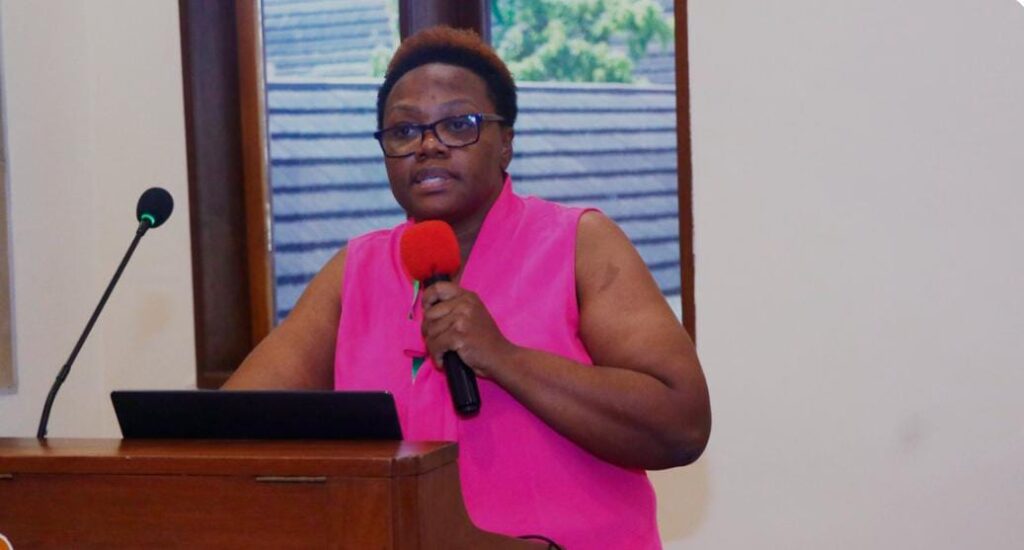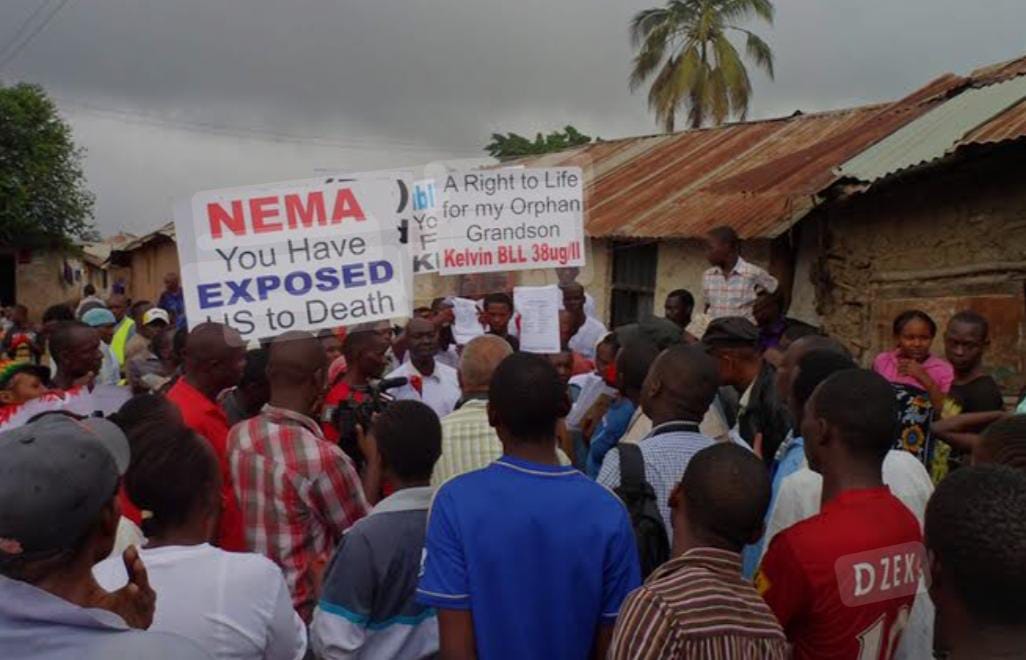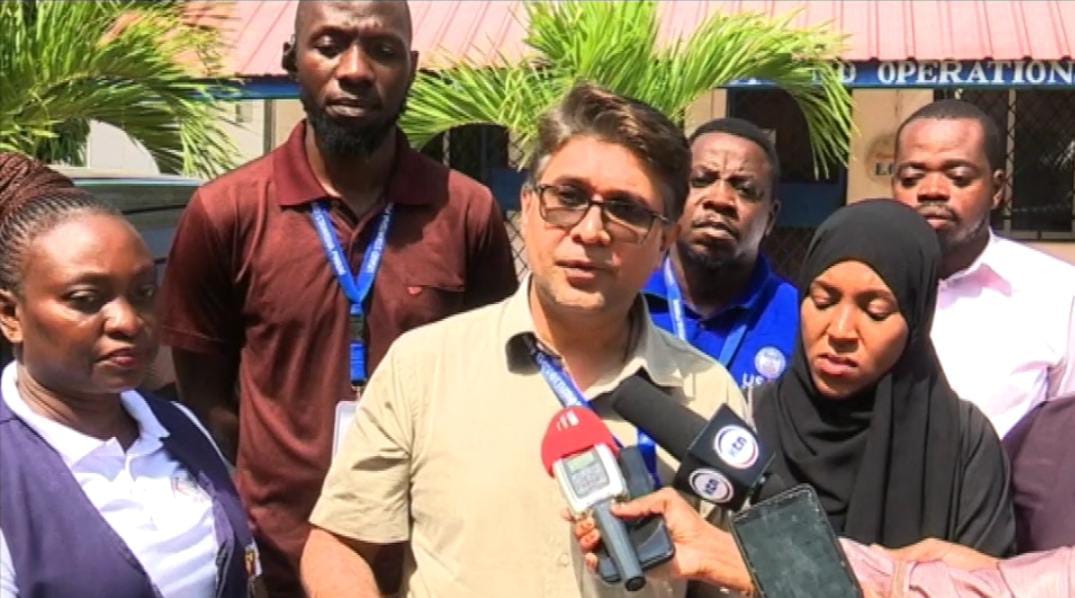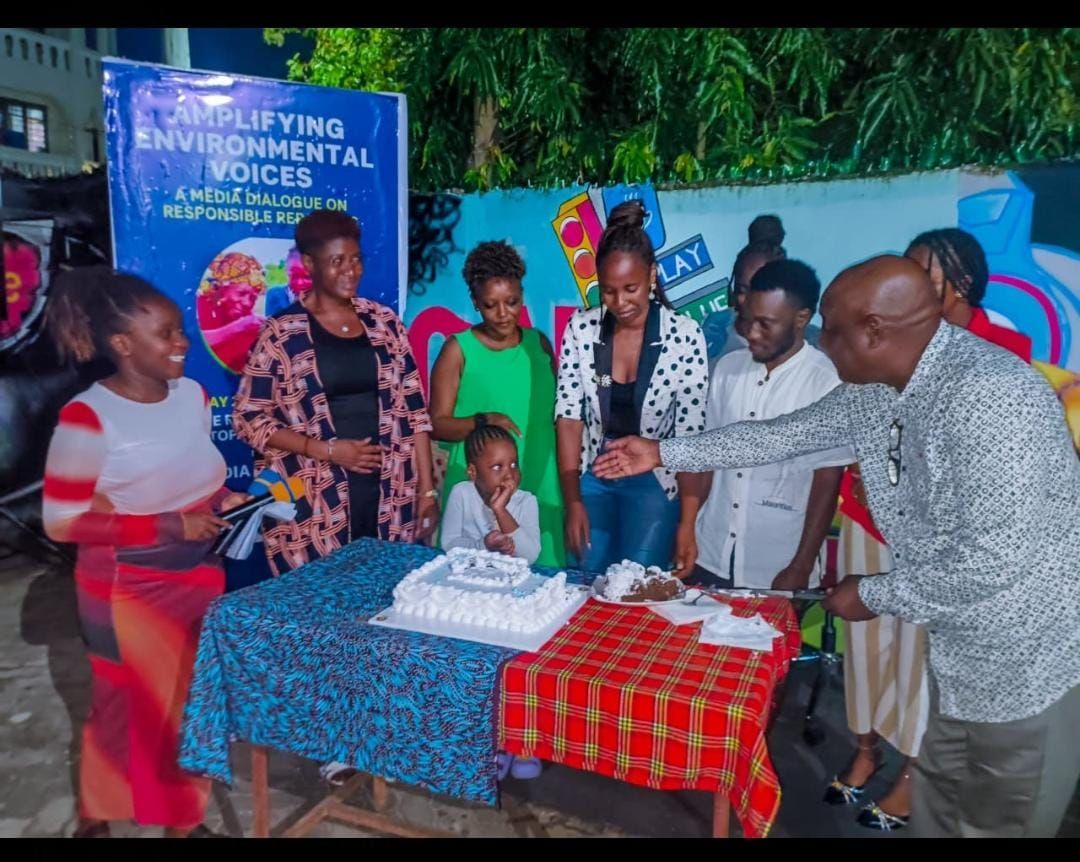Owino Uhuru residents addressing the media at one of the past demonstrations against devastating effects of lead poisoning as the case for compensation dragged in court. The Supreme Court awarded them Ksh2billion in compensation| Photo Courtesy
In a historic victory for environmental justice, the Supreme Court of Kenya upheld a lower court’s decision to award Ksh2 billion in compensation to residents of Owino Uhuru Village in Mombasa County. The victims, who have suffered for over a decade from the devastating effects of lead poisoning caused by a nearby battery recycling plant, can finally breathe a sigh of relief.
The ruling, delivered on December 5, 2024, held accountable the culpable parties, including Metal Refinery EPZ Ltd, Export Processing Zone Authority (EPZA), and Penguin Paper and Book Company. The compensation will be used to fund medical treatment for the thousands of victims and to compensate families who lost loved ones to lead poisoning.
The once vibrant community of Owino Uhuru, a sprawling slum in Mombasa Kenya, was silently poisoned. A nearby lead acid battery recycling plant spewed toxic fumes, contaminating the air, soil, and water. Children played in contaminated soil, unaware of the invisible danger lurking beneath their feet. Adults fell ill, their bodies ravaged by the insidious effects of lead poisoning.
The community, led by the indefatigable environmental activist Phyllis Omido, refused to be silenced, they organized protests, raised awareness, and pursued legal action against the polluters, Metal Refinery EPZ Ltd, and negligent government agencies, including NEMA and the Ministry of Environment and Forestry.
“Today reminded me of the comrades we started this journey with who have died in the process, they died without seeing justice, even though we have seen justice today through the Supreme Court, we’re going to fight against any form of impunity that denies community justice when they have been wronged. We’re going to ensure that the Center for Justice and other civil society organizations come together to ensure that justice is a process that does not come after people have already died.” Said Omido.
Phylis Omido, the founder of the Centre for Justice, Governance and Environmental Action (CJGEA) and renowned environmental and human rights activist, revealed that approximately 90% of Owino Uhuru residents tested positive for lead poisoning in a sample of 800. This staggering statistic highlights the severity of the health crisis faced by the community.
One affected resident, shared his personal struggle with the health impacts of the pollution. “I didn’t realize the full extent of the damage until my both legs weakened, and I could no longer walk on my own. I was once strong and hardworking man but as you can see I’m no longer that fit any more. I cannot walk I depend on my crutches for the support and I cannot work because of my situation.”
Another resident recalls their journey as the victim of human right they went through in the hands of the police in such of justice. “We started this journey 15 years ago, it has not been easy. At one point, 16 of us, including Ms. Phyllis, were arrested. We struggled with the case until, at the end we were released from prison,” recalls Owino Uhuru resident.

The legal battle was arduous and fraught with challenges. The community, supported by human rights organizations, fought tirelessly against powerful corporations and government officials. The case eventually reached the Supreme Court, where judges Isaac Lenaola, Mohamed Ibrahim, William Ouko, Njoki Ndung’u, and Smokin Wanjala heard the plea of the affected residents.
In a landmark judgment, the Supreme Court ordered the polluters to pay substantial compensation to the victims. This historic ruling not only provides much-needed relief to the affected residents but also sets a significant precedent for environmental justice in Kenya and beyond.
Dr. Muinga Chokwe, Chairman of Clean Mombasa CBO, echoed Omido’s sentiments, terming the Supreme Court decision a significant victory against environmental polluters. This victory underscores the power of community activism and the importance of environmental justice.
“The legacy of Owino Uhuru will continue to inspire future generations to fight for a cleaner, healthier, and more equitable world. By learning from the mistakes of the past, we can work towards a future where environmental justice is a reality for all,” said Dr Chokwe..
Kelly Ngeti, a conservationist, emphasized that the rights and fundamental freedoms of the Kenyan people must be respected and upheld at all times.






